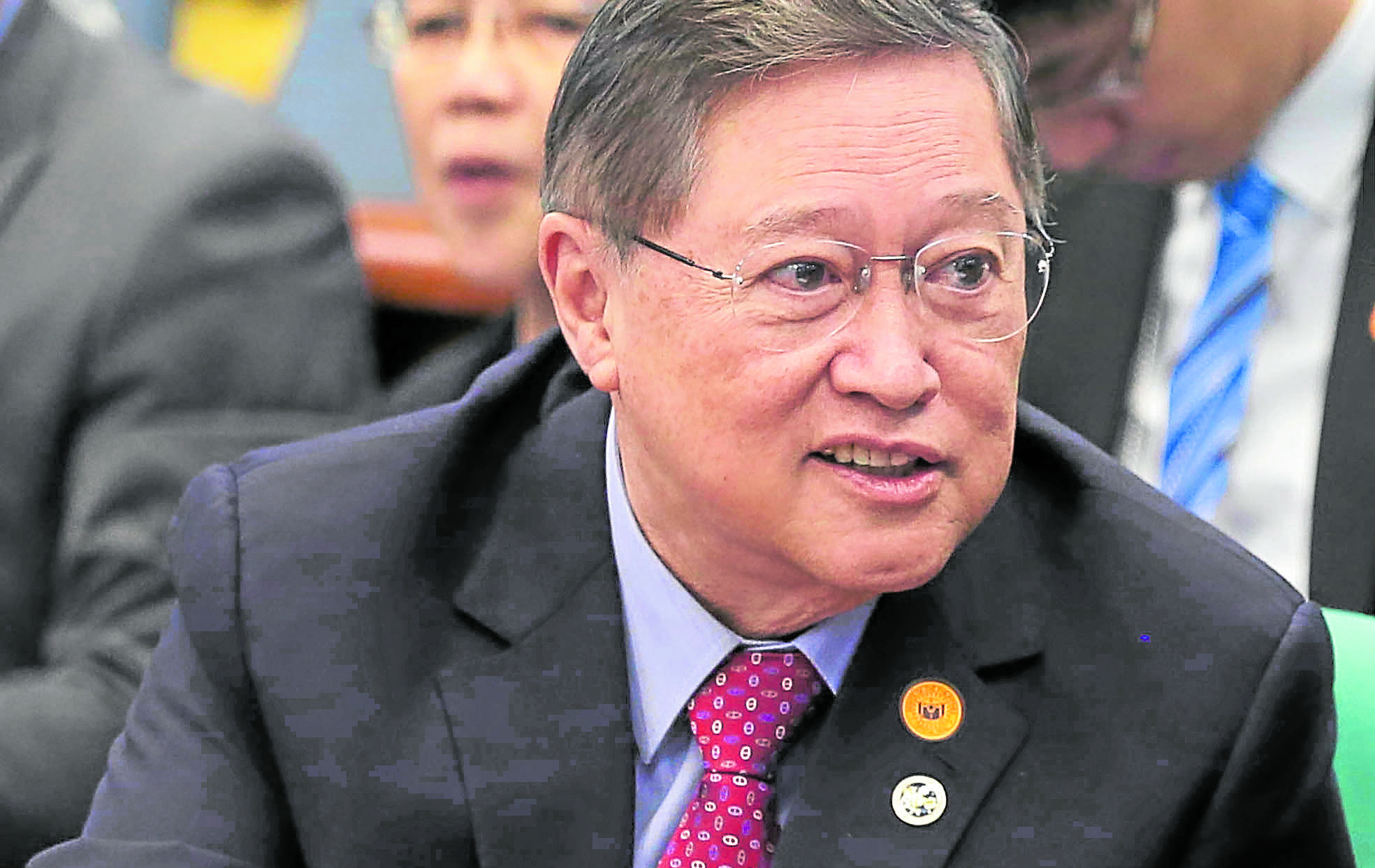MANILA, Philippines—President Rodrigo Duterte’s chief economic manager has urged Ferdinand “Bongbong” Marcos Jr., apparent winner of the presidential race, to push through with fiscal consolidation to pay off a record debt that Duterte would leave behind.
Finance Secretary Carlos Dominguez III said he believed the rising ratio of debt-to-GDP can be addressed “through a well thought out, closely coordinated and efficiently executed economic program.”
This will form part of the comprehensive fiscal consolidation and resource mobilization plan to be turned over by the outgoing Duterte administration to presumptive president Marcos Jr.’s economic team.
It will detail measures to “protect the most vulnerable from worldwide inflationary pressures through targeted subsidies, foster sustainable and inclusive economic growth, and maintain a healthy fiscal regime by increasing revenues and eliminating wasteful expenditures,” Dominguez said on Thursday (May 12).
It may include new or higher taxes, cuts on non-priority spending, as well as drivers to economic growth so it can outgrow the government’s record-high debt and increase revenues to narrow the yawning budget deficit wrought by the prolonged COVID-19 pandemic.
Dominguez said authors of this fiscal consolidation program will be “ready in time to brief the incoming economic team.”
The finance chief said there will be enough time for the outgoing and incoming administrations to discuss this fiscal consolidation strategy.
Socioeconomic Planning Secretary Karl Kendrick Chua said the next administration also needed to craft tax reform and push for it earlier on just like what the Duterte administration did. Chua, as then finance undersecretary, led the push for Congress to adopt Duterte’s comprehensive tax reform package.
The administration of the late President Benigno Aquino III, through then finance chief Cesar Purisima, had turned over to Dominguez the DOF proposal during the transition from Aquino to Duterte. This allowed the Duterte administration to come up with its comprehensive tax reform program in just months. By September 2016, or some three months after Duterte assumed office, Chua was already pitching Duterte’s tax reform bills to Congress.
Chua, who heads the state planning agency National Economic and Development Authority (Neda), said the next administration may consider revisiting “sin” tax rates, as well as removing all exemptions from the 12-percent value-added tax (VAT) to more efficiently collect the levy.
Chua said the VAT rate may be lowered just like in some neighboring Asean countries, but only when the prevailing exemptions were dismantled. The DOF had attempted to scrap all VAT exemptions under the Tax Reform for Acceleration and Inclusion (TRAIN) Act, but legislators kept them, especially those for the elderly, the handicapped, and other vulnerable sectors of society.
DOF officials had also said the next administration could set its sights on “relatively untaxed” sectors, and consider the viability of carbon tax, a levy on cryptocurrencies, as well as further increases in excise on cigarettes, e-cigarettes and vapes, alcoholic drinks, and sugar-sweetened beverages.
But Marcos Jr. had expressed hesitance to hike taxes at a time when many Filipinos were still reeling from the harder times wrought by COVID-19.
The stronger-than-expected 8.3-percent year-on-year GDP growth during the first quarter was nonetheless outpaced by the faster 17.7-percent climb in the national government’s outstanding debt to a new high of P12.68 trillion as of end-March as a result of more domestic and foreign borrowings at the start of the year to finance the budget.
These outstanding obligations had been projected to hit a new annual high of P13.42 trillion by yearend. Despite expectations of 7 to 9 percent GDP growth this year, debt-to-GDP — which better measures a country’s capability to repay debts — would end the year at 60.9 percent of GDP, slightly higher than the 16-year-high 60.5 percent last year. Credit ratings agencies peg public debt in emerging markets like the Philippines as manageable at 60 percent of GDP.
Before COVID-19 struck, the Philippines’ debt-to-GDP ratio fell to a record-low of 39.6 percent in 2019. But at the height of the health and socioeconomic crises inflicted by COVID-19, the government ramped up its borrowings to add to its war chest for the protracted fight against the pandemic.
For instance, the Philippines borrowed a total of $2 billion via low-interest loans from multilateral lenders last year to buy vaccines and booster shots, in order to inoculate the majority of the population for free. The government had also obtained concessional borrowings to implement programs and projects supportive of recovery from the pandemic-induced economic slump.
COVID-19-related foreign borrowings alone from 2020 at the onset of the pandemic until mid-January of this year reached $25.7 billion, or P1.31 trillion, which the DOF had said will take 40 years, or about two generations, to repay.


